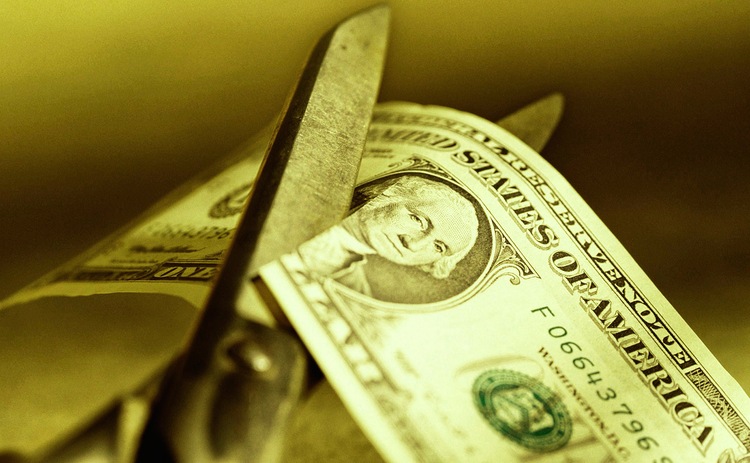RIO DE JANEIRO, BRAZIL – Brazil’s CDS (Credit Default Swap), an international indicator of default risk, tripled in 2020 because of the crisis triggered by the Covid-19 pandemic. The upward trend was also observed in the bonds of all other countries in the world, since the disease spared no economy.
Nevertheless, Brazil’s CDS managed to distance itself from the average of those countries with the same risk rating as ours (BB-) in the main international agencies. According to specialists, this performance is related to the fiscal adjustment measures Brazil had been implementing in the pre-crisis period – but the future is still uncertain.

The CDS, short for Credit Default Swap, is a financial market bond that works as insurance. It is issued by financial institutions and guarantees its holder loss coverage in case of default in the countries’ securities.
The lower the country default risk, the lower the corresponding CDS score – i.e. closer to zero. Hence, the higher the risk of default, the higher the CDS score.
On May 27th this year, Brazil’s five-year CDS reached 270 points. It’s a figure well above the 98.9 points it scored on January 1st. At its 2020 peak to date, it reached 372 points on April 27th.
By late 2019 and early 2020, Brazil’s CDS had dropped to 90 points, its lowest since 2013, when the country still had an investment grade seal of approval by the world’s three major risk agencies.
The Brazilian CDS reached its historic high in 2002, when it climbed to nearly 4,000 points on the eve of the presidential election that brought Luiz Inácio Lula da Silva to power. In 2018, amid the uncertainty of the presidential race, which culminated in the election of Jair Bolsonaro, the indicator stood at 600 points.
Despite the current 270 points, Brazil’s CDS is still well below the average of other countries with a BB- rating, at 407 points. It is also at a better grade than the average CDS of countries rated BB, a grade above ours on the agency rating, of 323.7 points.
Economies rated BB+, two degrees above ours, have an average CDS of 191 points. Those classified as A-, the first level on the scale of countries with a good payer seal, have an average CDS of 74 points. The data is from Bloomberg and was collected by David Cohen, manager of Paineiras Investments.
“Brazil has a slightly different risk position than most of its peers. It has a local debt among the largest of the emerging economies, but internationally it is a net creditor (that is, its foreign exchange reserves are greater than its foreign debt),” said Cohen.
The manager pointed out that the CDS increase recorded now due to the crisis is logical, but pointed out that the likelihood of Brazil’s external debt defaulting is very low. The CDS is “an instrument that protects against foreign debt default, which, in Brazil’s current situation, is highly unlikely”.
“Before this crisis, Brazil was experiencing an improvement in the agencies’ rating perspective, which was showing a positive outlook, following the Welfare reform and a local debt/GDP dynamic that had been positively surprising,” he highlighted.
“With the crisis, which produced large fiscal spending needs, in addition to a recession that brutally reduced revenues, this scenario changed entirely, and with it, the prospect of upgrading has declined. In addition, the sharp depreciation of the exchange rate also led the Central Bank to intervene in the exchange rate through the sale of reserves, also reducing the creditor position, which is still maintained, compared to what we had before,” concluded the manager.
Guilherme Attuy, chief economist at Gauss Capital, believes the coronavirus crisis had a more significant impact in Brazil than in other countries in the world, because its fiscal framework was already in a delicate situation – and the pandemic forced the government to spend more.
“There were also two other factors. The first is our virus curve, which has proved more resilient than in the rest of the world, which ultimately forces a downward growth review, since there is a need to resort to social distancing measures. Even if these measures are lifted, there is a risk that the population will not feel safe going to the streets and resuming consumption,” he said.
“What we have also witnessed is much political noise. We saw the Minister of Health being fired, then the second Minister of the portfolio was not long-lasting and there was also the resignation of the Minister of Justice, Sérgio Moro, which raised doubts in the market regarding the permanence of the Minister of Economy, Paulo Guedes,” he added.
The Gauss chief economist also said that the fiscal problem in Brazil should take longer to get off international investors’ radar, so the risk premium for the country should remain high. The political risk and the coronavirus issue are temporary, but their impact on the Brazilian CDS will hinge on the government’s direction in the coming months.
Source: InfoMoney

